New Scientist covers the latest developments in science and technology that will impact your world. New Scientist employs and commissions the best writers in their fields from all over the world. Our editorial team provide cutting-edge news, award-winning features and reports, written in concise and clear language that puts discoveries and advances in the context of everyday life today and in the future.
Elsewhere on New Scientist
Eyes on the prize • We need to focus on reaching net-zero emissions, not on arbitrary temperature limits
New Scientist
The blades of future giants
Bennu may be from an ocean world • A sample from the asteroid, brought back by NASA’s OSIRIS-REx mission, hints it was once part of a small planet with conditions favourable for life to emerge, finds Joshua Howgego
Blue eyes may be better in dim light than brown eyes
Temperatures may have passed 1.5°C of warming a decade ago
Fusion reaction milestone confirmed • The US National Ignition Facility has achieved even higher energy yields since breaking even for the first time in 2022, but a practical fusion reactor is still a long way off, says Matthew Sparkes
Menstrual cycle hormone changes don’t actually affect cognitive skills
Tiny tornadoes inside cells mix up their contents
Yeast tweak to raise the bar for lager • Hybridisation of yeast species in the lab opens the door to beer with novel flavours
Dance mat-style game helps stop older people falling
Sea creatures may eat more plastic if it is biodegradable
Ukraine will confuse GPS across nation to stop Russian drones
Dire straits for the Panama Canal • Severe drought is threatening the stability of one of the world’s most important shipping routes, reports James Dinneen
Drain on the economy
A cold, early start in Europe • Evidence of Homo sapiens in northern Europe as early as 45,000 years ago shows our species endured icy conditions to expand across the continent, finds Michael Marshall
NASA’s Mars helicopter ends its mission but leaves strong legacy
Anglerfish may be so diverse because of the way they mate
CRISPR gene therapy seems to cure dangerous inflammatory condition
Tweaking aeroplane altitudes could slash climate impact
Lovebirds use their beaks for swinging
Smart hat senses traffic light change
Heart monitor can reveal risk of a birth being premature
Really brief
A sense of community • Hybrid working has its benefits, but employees will be happier and more productive with more face-to-face contact, says Robin Dunbar
Field notes from space-time • Not on the same wavelength For most of humanity’s existence, we have observed the cosmos using light, but these days photons aren’t the only game in town, says Chanda Prescod-Weinstein
What a fungi
Your letters
What diets really say about us • The story of how Jacqueline Alnes fell under the spell of “fruit-only” dietary influencers shows how modern life can make us vulnerable, says Elle Hunt
On the origin of extinction • A hopeless Victorian quest to find the great auk may have fuelled modern concerns about extinction and conservation, discovers Tom Tierney
New Scientist recommends
When the rain came • A new film set in a flooded London looks to the individual, emotional struggle of a mother caring for her newborn, says Katie Smith-Wong
The shape of reality • The hunt for a final theory of physics appeared to have stalled. But new ideas emerging from a wild landscape of geometry are reinvigorating the hunt, says Michael Brooks
Fungi ahoy! • The oceans, it turns out, are teeming with fungi and they could help solve some of humanity’s biggest challenges, finds Graham...

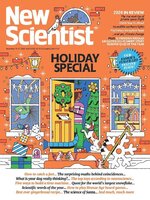 Dec 14 2024
Dec 14 2024
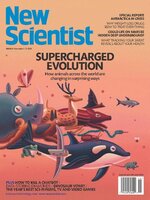 Dec 07 2024
Dec 07 2024
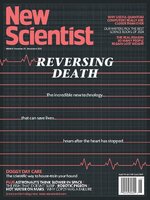 Nov 30 2024
Nov 30 2024
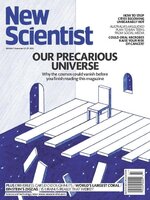 Nov 23 2024
Nov 23 2024
 Nov 16 2024
Nov 16 2024
 Nov 09 2024
Nov 09 2024
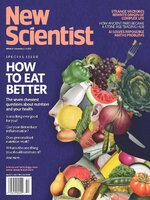 Nov 02 2024
Nov 02 2024
 Oct 26 2024
Oct 26 2024
 Oct 19 2024
Oct 19 2024
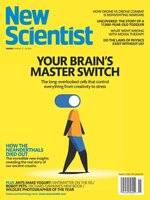 Oct 12 2024
Oct 12 2024
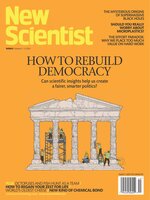 Oct 05 2024
Oct 05 2024
 Sep 28 2024
Sep 28 2024
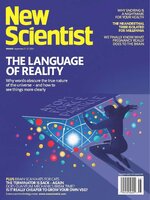 Sep 21 2024
Sep 21 2024
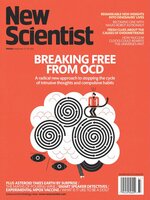 Sep 14 2024
Sep 14 2024
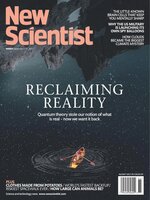 Sep 07 2024
Sep 07 2024
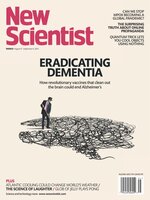 Aug 31 2024
Aug 31 2024
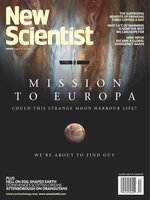 Aug 24 2024
Aug 24 2024
 Aug 17 2024
Aug 17 2024
 Aug 10 2024
Aug 10 2024
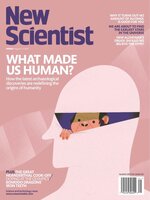 Aug 03 2024
Aug 03 2024
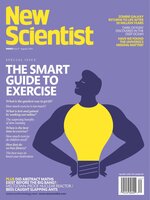 Jul 27 2024
Jul 27 2024
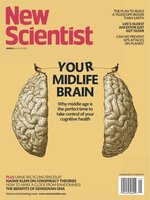 Jul 20 2024
Jul 20 2024
 Jul 13 2024
Jul 13 2024
 Jul 06 2024
Jul 06 2024
